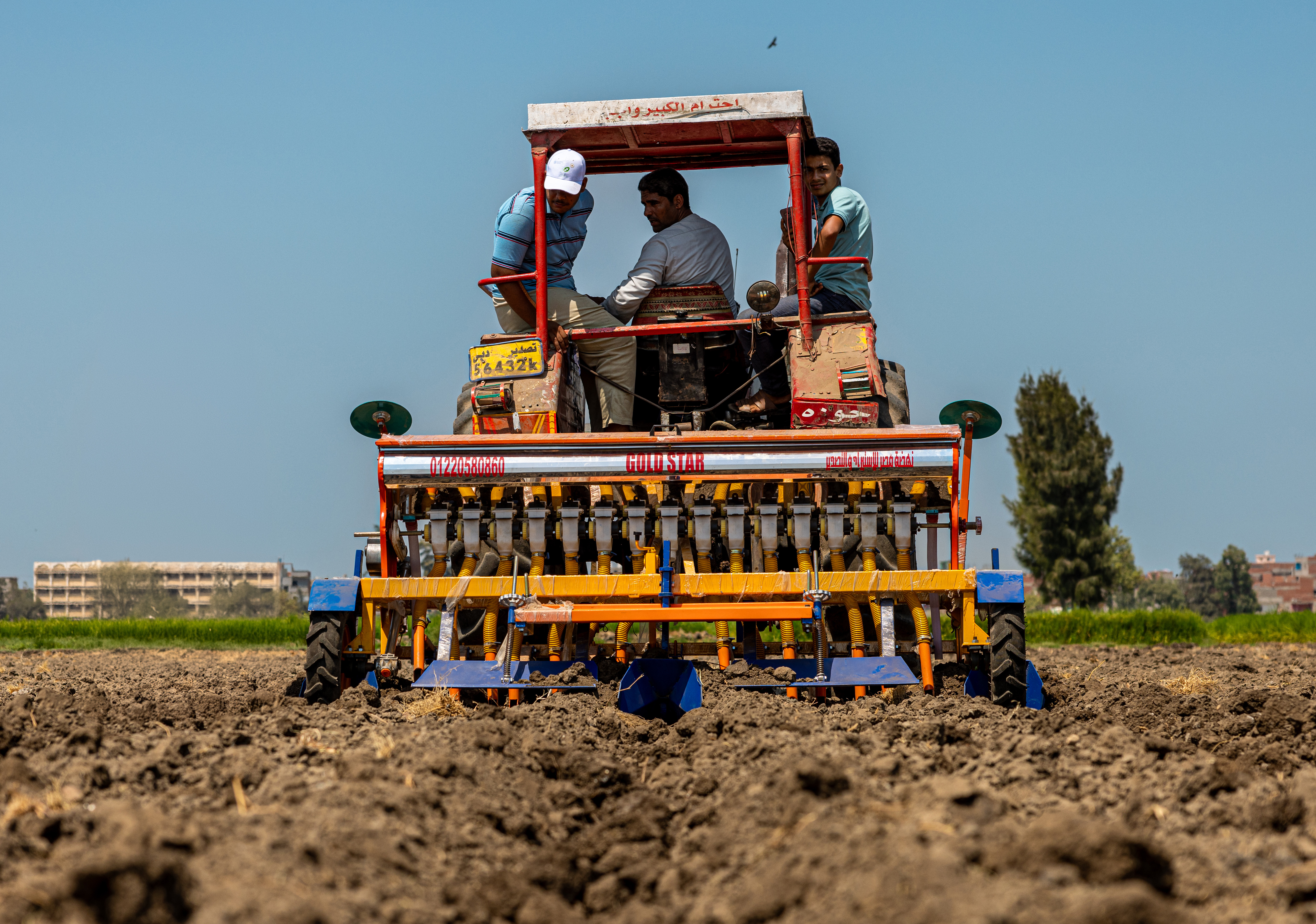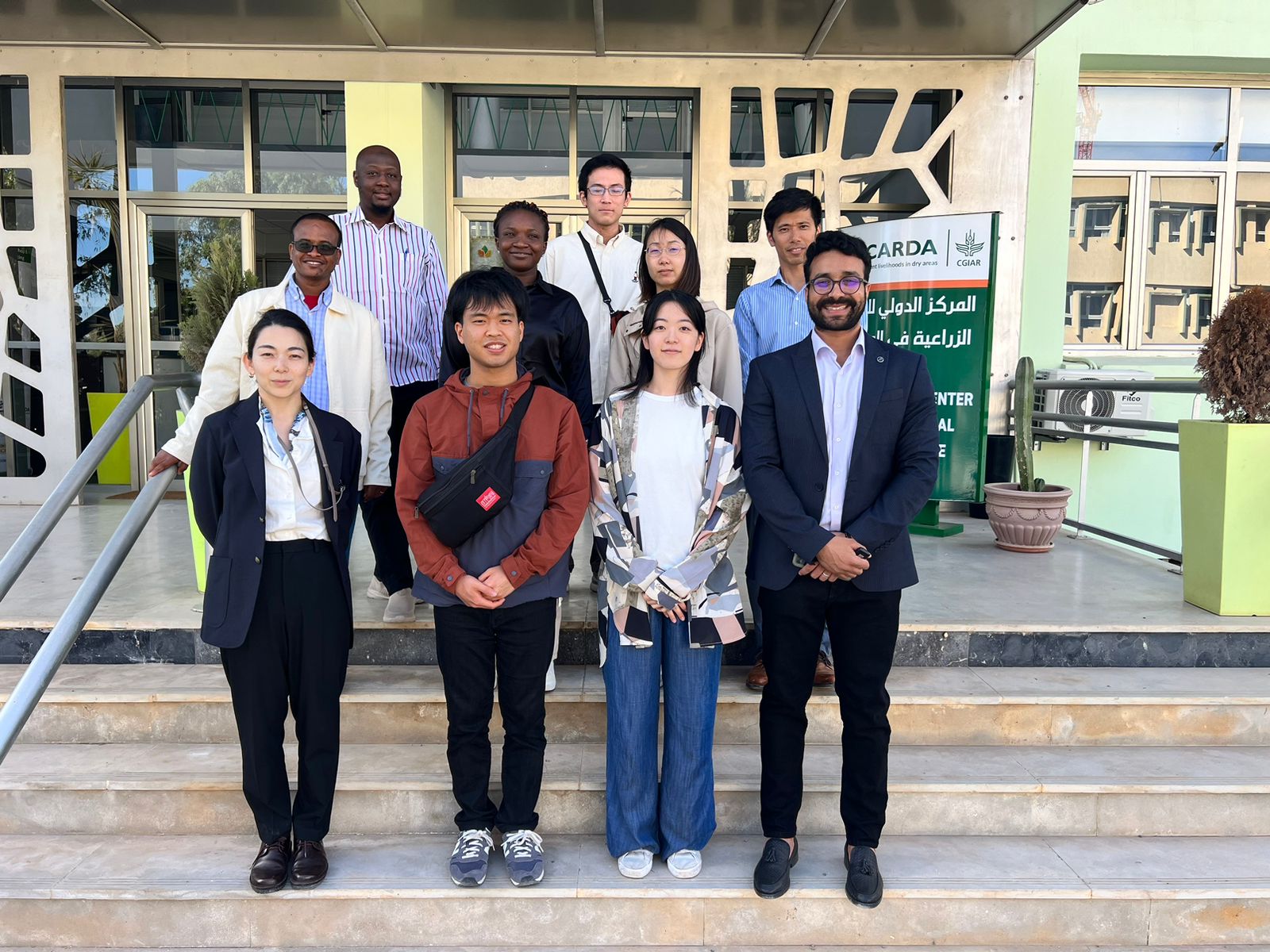Conference on Innovations for Sustainable Production of Neglected and Underutilized Crop Species in MENA Region
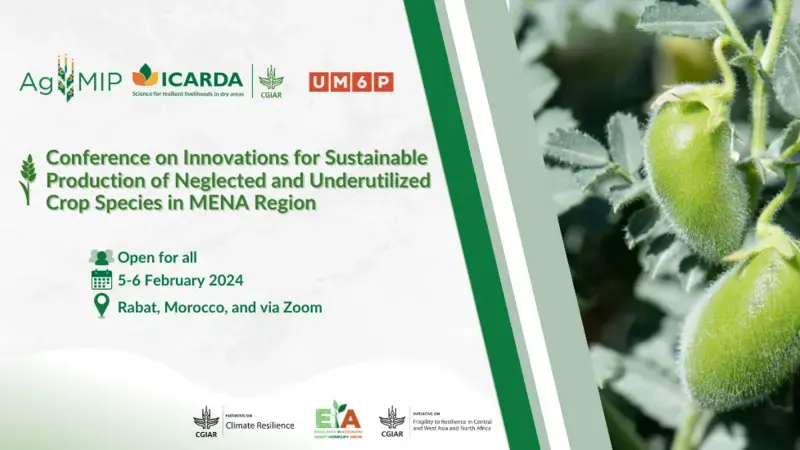
The conference took place on February 5-6, 2024, in Rabat, Morocco, and virtually.
Neglected and Underutilized Crop Species (NUS) are recognized for their potential in addressing malnutrition, hunger, and the effects of climate change. These resilient crops, often referred to as minor or underutilized, offer significant opportunities for improving agricultural sustainability and dietary diversity. However, challenges such as limited knowledge and awareness, market access, seed availability, science-based recommendations, and research support hinder their cultivation.
In 2023, ICARDA, the Agricultural Model Intercomparison and Improvement Project (AgMIP), and Mohammed IV Polytechnic University (UM6P) launched AgMIP-MENA - an initiative for decision support in NUS and other crops in the Middle East and North Africa (MENA) region. The goal of this initiative aligns well with global initiatives like the Vision for Adapted Crops and Soils (VACS) and AIM4Climate, promoting innovation in climate-smart agriculture and driving investments for sustainable food systems.
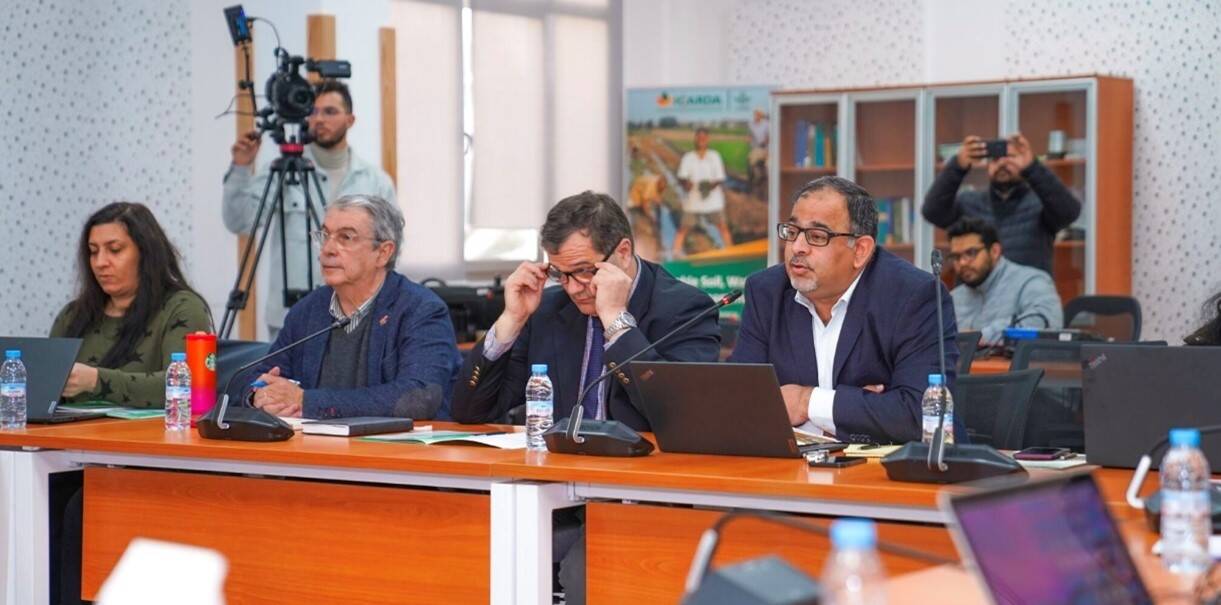
ICARDA, UM6P, and AgMIP hosted a two-day MENA Regional Conference on NUS on 5-6 February 2024 aiming to further advance these goals by promoting collaboration, research, and policy initiatives related to neglected crops.
World-renowned experts and specialists in advancing NUS crops through digital agronomy, sustainable soil, water and crop management practices, climate change resilience, nutrition, dryland farming, market, and policy analysis delivered insightful keynote speeches at the event. This gathering brought together experts from diverse fields, including policymakers, researchers, scientists, extensionists, and students from research centers, universities, and national and international organizations, contributing to the sustainable transformation of dryland agri-food systems.
Over 1000 participants registered to attend online, approx. 50-60 attended in person, and over 140 abstracts were received from over 28 countries to discuss the potential of 41 NUS crops that can feed 278 million people. To accommodate these many submissions, a poster session was added towards the end of the conference.
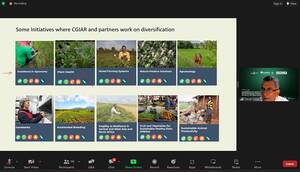
"AR4D efforts require more systems’ thinking, analysis and decision-making because we are dealing with the complex and inter-related matters. In this regard, NUS can offer opportunities to innovate according to the contexts and diversify agri-food systems." - Oscar Ortiz, Senior Director – Crop-based Systems CGIAR
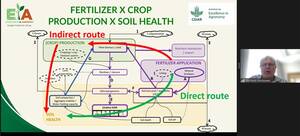
"NUS can play a crucial role to ecosystem functioning within the and land use boundaries to sustain productivity, maintain environmental quality, and promote plant and animal health" - Bernard Vanlauwe, Lead – Excellence in Agronomy CGIAR Global Research Initiative.
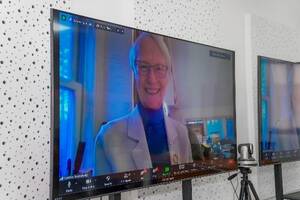
"MENA scientists are rapidly transforming "Neglected and Underutilized" crops into "Opportunity" crops, contributing to the emerging Vision for Adapted Crops and Soils (VACS)" - Cynthia Rosenzweig, 2022 World Food Prize laureate, NASA Goddard Institute for Space Studies.
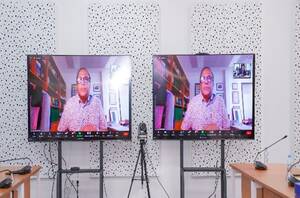
"Governments, and research and development organizations need to lessen their focus on staple and cash crops, tap into Future Smart Foods’ (FSF) vast potential, and integrate them into the existing cereal-dominated mono-cropping systems." - Kadambot Siddique, UN FAO Special Ambassador for the International Year of Pulses, University of Western Australia.
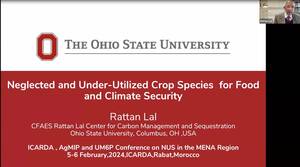
"NUS crops fit into the regenerative agriculture systems. It is an important part of climate change adaptation and mitigation, restoration of degraded soils, promoting nutrition-sensitive agriculture based on the concept of “Producing More from Less.” Where, research, education and policy are the key towards mainstreaming NUS into the food systems." - Rattan Lal, 2020 World Food Prize laureate, Distinguished University Professor of Soil Science and founding Director of the Carbon Management & Sequestration Center at The Ohio State University.
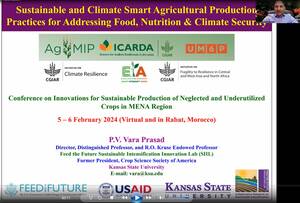
"Our agri-food systems have many challenges and wicked problems. It needs to utilize all opportunities to diversify food systems. Sustainable intensification and climate smart agricultural practices coupled with transdisciplinary research and collaboration are critical to realize the potential of NUS crops." – P.V. Vara Prasad, Distinguished Professor, and Director – Feed the Future Sustainable Intensification Innovation Lab, Kansas State University.
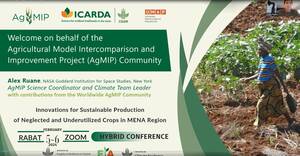
"AgMIP-MENA Initiative can foster collaboration and network for promoting NUS crops for fostering sustainability of agri-food system. – Alex Ruane, AgMIP Science Coordinator and Climate Team Leader, NASA Goddard Institute for Space Studies.
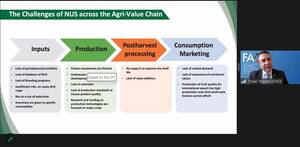
"NUS is remaining underutilized in the MENA region because of the lack of research, lack of awareness, little or no market value, lack of extension, difficult production in large scale, and single cropping to serve market and consumers' needs." - Thaer Yaseen, Senior Plant Production and Protection Officer, Food and Agriculture Organization of the UN.
The conference highlighted:
- Digital Tools, Remote Sensing, Simulation Modeling
- Crop Management and Good Practices
- Climate Resilience and Nutritional Security
- Market Demand, Policy, and Consumer Preference
Selected attendees, chosen from the 140 abstract submissions, had the opportunity to present their research alongside experts and keynote speakers. The conference facilitated dynamic discussions, enabling presenters to engage directly with thought leaders in the field and receive valuable feedback on their work.
Discussions enriched the collective understanding of neglected and underutilized crop species and their pivotal role in addressing global challenges such as malnutrition, food insecurity, and climate change. Furthermore, recommendations were given and thoroughly discussed to leverage these insights effectively. For detailed recommendations, please refer to the attached document.
In addition to live presentations, we are offering participants the chance to explore a virtual gallery featuring posters from contributors worldwide. Posters are now available online for further reference.
We invite you to watch our "Best Moments" video of the conference to catch the highlights and insights shared.


